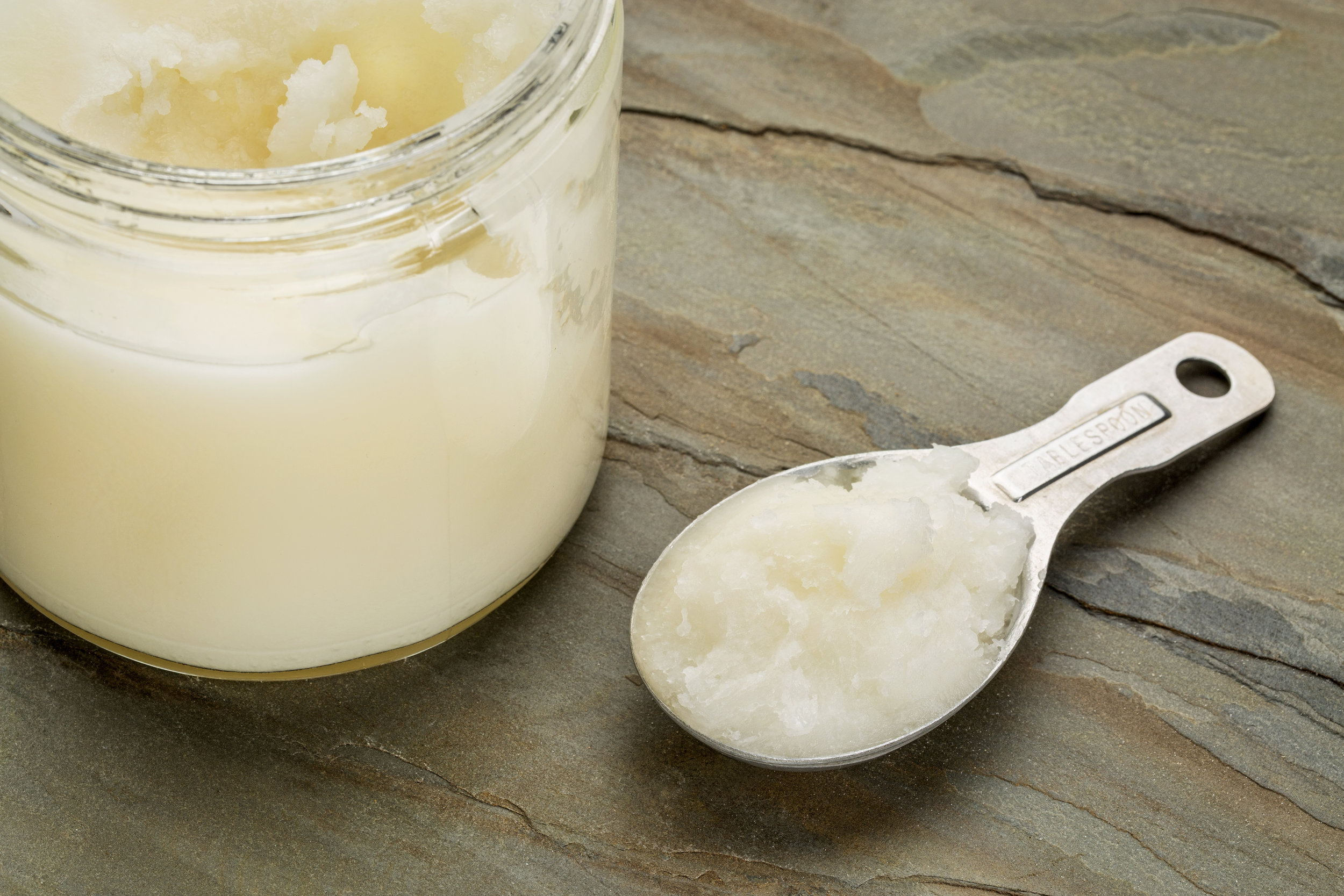The “Skinny” On Fats
Fat is beneficial! We need it for our bodies to function properly. There are certain vitamins, like D, for example, that need fat to allow it to be absorbed into your body. Fat provides you with a source of energy, gives you healthy skin, hair and nails. Good fats can actually lower your risk for heart disease, cancer, stroke, obesity and decreases cholesterol levels and inflammation. Another great benefit to fat is that it protects your brain from memory loss and dementia.
You may be asking, “If fat is so good for me then why have I been told to eat a low-fat diet?”
All fats are not the same. Let’s take a look. There are three basic types of fat, Saturated fats, Trans Fats and Unsaturated Fats.
Naturally occurring fats, called Saturated Fats, are found in foods produced from animals. These are easy to identify because they are solid at room temperature. Examples are butter, cheese, milk, beef, fish or chicken. These saturated fats can be consumed but only in moderation. When selecting these look for Grass Fed options. Grass fed beef and dairy contain healthier levels of Omega 3s, and may contain fewer antibiotics or hormones, both of which hinder your weight loss efforts. Choose naturally lower fat cheeses like mozzarella or goat. I not talking about “low-fat diet” or “fat-free” cheeses. Those manufactured diet foods are modified by taking away the natural fat and replacing it with sugar and starches. Another source of Saturated fat is Coconut Oil. Coconut oil has become one of my favorite things! Try it in smoothies, use it to cook eggs or to flavor your hot tea or coffee. It’s delicious. If you don’t like the flavor of coconut you can buy varieties without the taste or smell of coconuts. Again, use this oil, as well, in moderation.
Harmful fats you want to avoid are Trans Fats. Trans fats are fats that have been changed by a process of hydrogenation. They are found in fried foods, shortening and processed foods. Trans fats have been found to be the culprits of raising your LDL (bad) cholesterol levels and lowering your HDL (good) cholesterol. They are also highly inflammatory, increasing your risk for diseases and certain cancers. Now you may be thinking all you have to do is read labels and look for “Zero Trans fats” right? No so fast. Unfortunately, the FDA allows food manufacturers to label their foods as Trans Fat Free even if the product contains up to 0.5 grams of trans fat per serving. Shocking, I know, but there’s more to be on the look out for. Trans fats are also known as partially hydrogenated oils. Avoid foods with that on the label. An example of this would be peanut butter. You may choose peanut butter as a healthy protein option but if you are getting the whipped, solid peanut butter, this contains trans fats. Manufacturers have taken the naturally occurring liquid oil from peanuts, added hydrogen to make it a solid. This was originally done to make it smoother and give it a longer shelf life. Choose only natural peanut butter that contains the oil floating on top. Don’t be fooled by the label that may say “natural” and think it’s trans fat free. There are many labeling laws that allow foods, like peanut butter to fall through the cracks so if the oil isn’t on top it contains trans fats.
The third kind of fat is the “Good” Fat! Unsaturated. It can be broken down into two subcategories. Monounsaturated and Polyunsaturated. Whew..I’m using a lot of big words. I actually had to do several spell checks along the way. Hang in there with me and we will get to the good part. Monounsaturated fat is found in avocados, nuts and olive oil. These fats can lower blood pressure and bad cholesterol. They also make you feel fuller and more satisfied. Polyunsaturated fats are mainly found in seafood but also some vegetable oils like sunflower. You may hear how beneficial fish oils are for you. They are also known as Omega 3 fatty acids. It is recommended that you eat at least 2 servings of fish per week to get your serving of Omega 3s. If you are not a fish lover you may also supplement to get these types of Omega 3s. Look for fish oil supplements that are pharmaceutical grade and have gone through a molecular distilling process to remove mercury, lead and other heavy metals.
Practically, where do you go from here? Avoid Trans fats by not eating processed foods. Bake, broil or grill instead of fry. Choose leaner, grass fed meat options. Incorporate the good fats into your diet. Avocados are easy way to do this. I eat avocados cut up with salt and pepper but if that is not your thing, here’s some other options. Blend half of an avocado in a smoothie. See my blog for this recipe. Top your scrambled eggs with avocado instead of cheese. More ways to introduce healthy fats in to your diet is to sprinkle flax seed, crushed walnuts or almonds in Greek yogurt. Make your own salad dressing with Olive oil and some balsamic vinegar.
Many times I hear clients say, “Eating healthy is so expensive!” Yes, I have asked you to buy truly natural peanut butter that costs $3-4 instead of 99 cents, $2 Avocados, Grass fed beef and expensive olive oil. I personally can’t put a price tag on my health, how about you? It is said that there are 2 types of people. People who will make excuses and people who will find a way! This is serious business! I am asking you to seriously take a look at your health and what it is worth to you. Can you cut out the $4 latte once or twice a week? Can you skip eating out one time a month? Can you watch a Red Box with your family instead of hitting the theater? I believe that you can make one or two of those changes and transfer that spending over to food that will allow you to have more control over your own health!
I have an assignment for you this week. Go through your cupboards and read labels. Look for trans fats, hydrogenated and partially hydrogenated and get rid of them. Then replace them with a healthier fat options, like the oil-on-top peanut butter, coconut oil or avocados. Please connect with me on my Facebook page at Kim Waggoner Health and share with me what changes you make this week! You will inspire others and keep yourself accountable. Here’s to your health!

